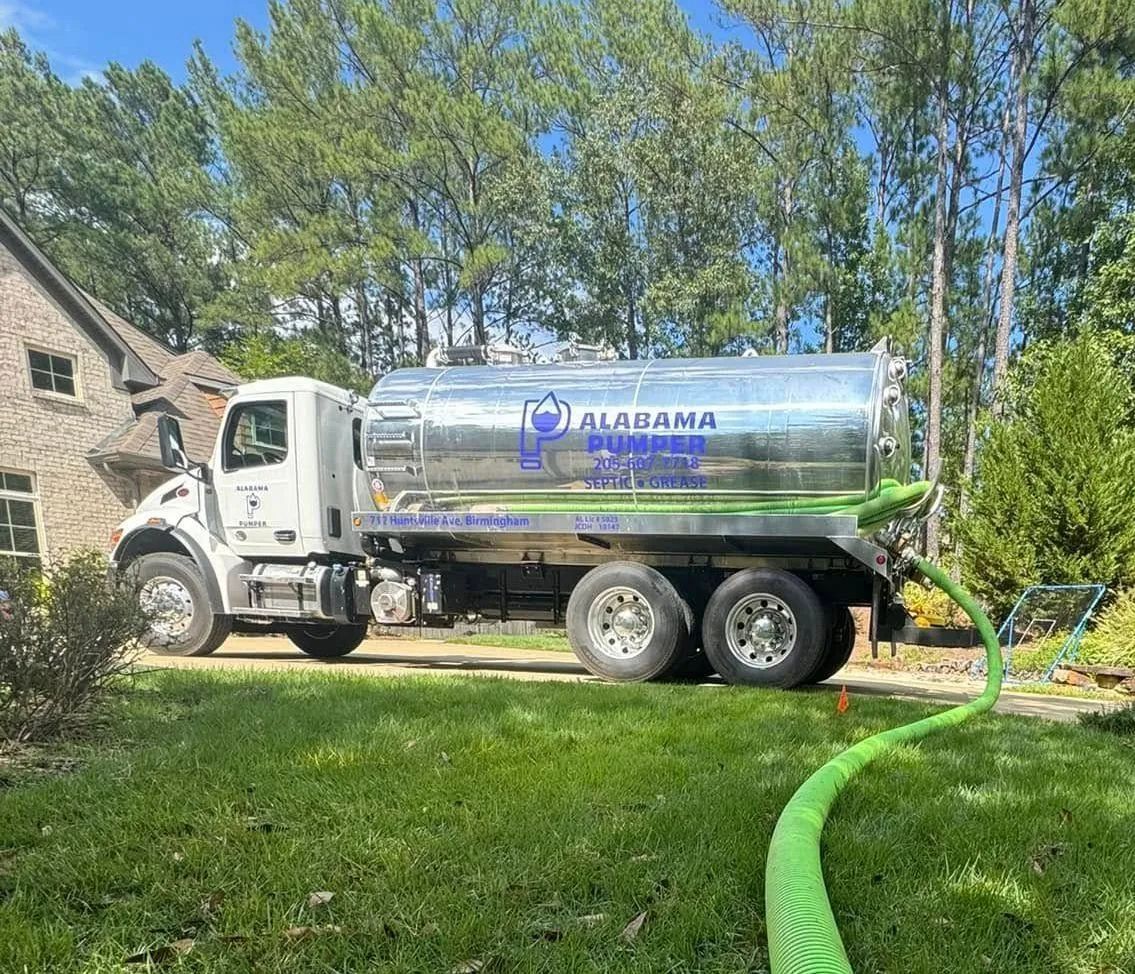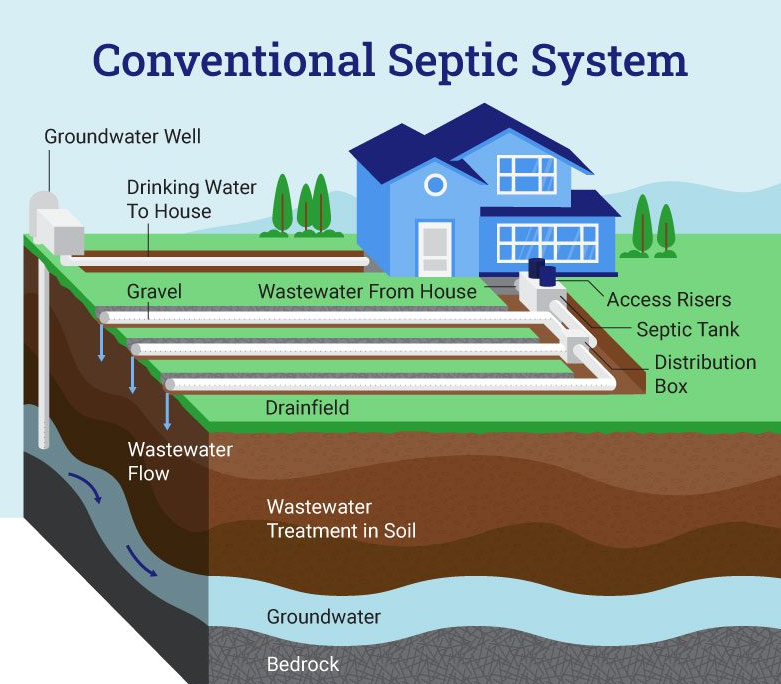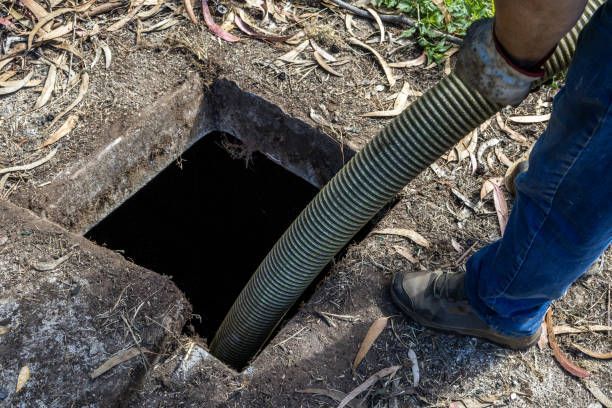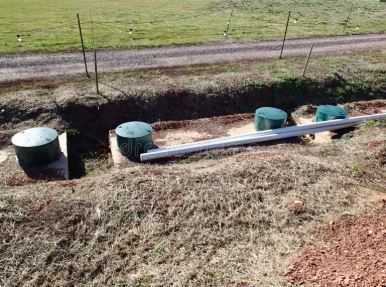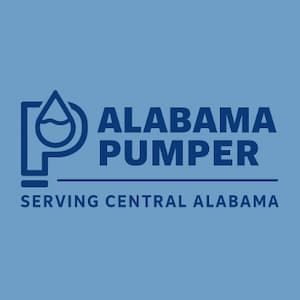Driveway Culverts:
Everything Homeowners in Alabama Need to Know
Driveway Culverts in Birmingham & Surrounding Cities:
Installation, Repair, and Maintenance Guide
When it comes to protecting your property from flooding and water damage, one of the most overlooked features is the driveway culvert. A driveway culvert is a drainage pipe installed beneath your driveway that allows water to flow freely from one side to the other, preventing pooling, erosion, and damage to your property.
For homeowners across Birmingham, Hoover, Gardendale, Trussville, Pell City, Odenville, Leeds, and Alabaster, driveway culverts are essential to keeping water moving during Alabama’s heavy rains. Whether you’re installing a new culvert or maintaining an existing one, understanding how they work can save you money and protect your home.
What Is a Driveway Culvert?
A driveway culvert is typically a round or elliptical pipe made from concrete, steel, or plastic (HDPE). It’s installed under a driveway or private road to allow water to pass underneath. Culverts connect ditches, streams, or drainage systems, helping control water flow and protect your driveway from washing out.
Without a culvert, rainwater and storm runoff would have nowhere to go, leading to:
- Standing water and mud
- Driveway erosion
- Property flooding
- Damaged landscaping
- Washed-out driveways
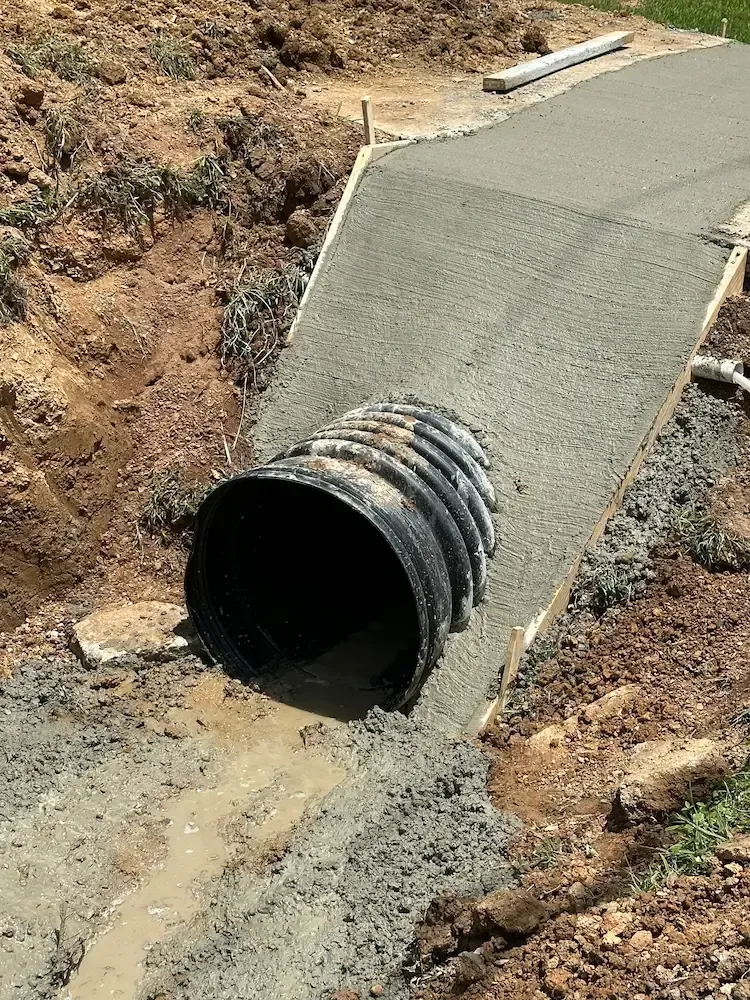
Why Driveway Culverts Are Essential in Alabama
Alabama’s climate is known for heavy rainstorms and flash flooding. In areas like
Springville, Chelsea, McCalla, and Pinson, a properly installed culvert can make the difference between a stable driveway and one that collapses under water pressure.
Some of the biggest benefits of driveway culverts include:
- Preventing flooding around homes and septic systems
- Protecting driveways from erosion and washouts
- Maintaining property value and curb appeal
- Keeping access safe for vehicles and emergency services
-
Types of Driveway Culverts
When installing or replacing a culvert, choosing the right material is critical:
Concrete Culverts
- Strong and durable
- Long lifespan (50+ years)
- More expensive and harder to install
Steel Culverts
- Stronger than plastic
- Susceptible to rust over time
- Great for heavy loads
Plastic (HDPE) Culverts
- Lightweight and affordable
- Easy to install
- Resistant to rust and corrosion
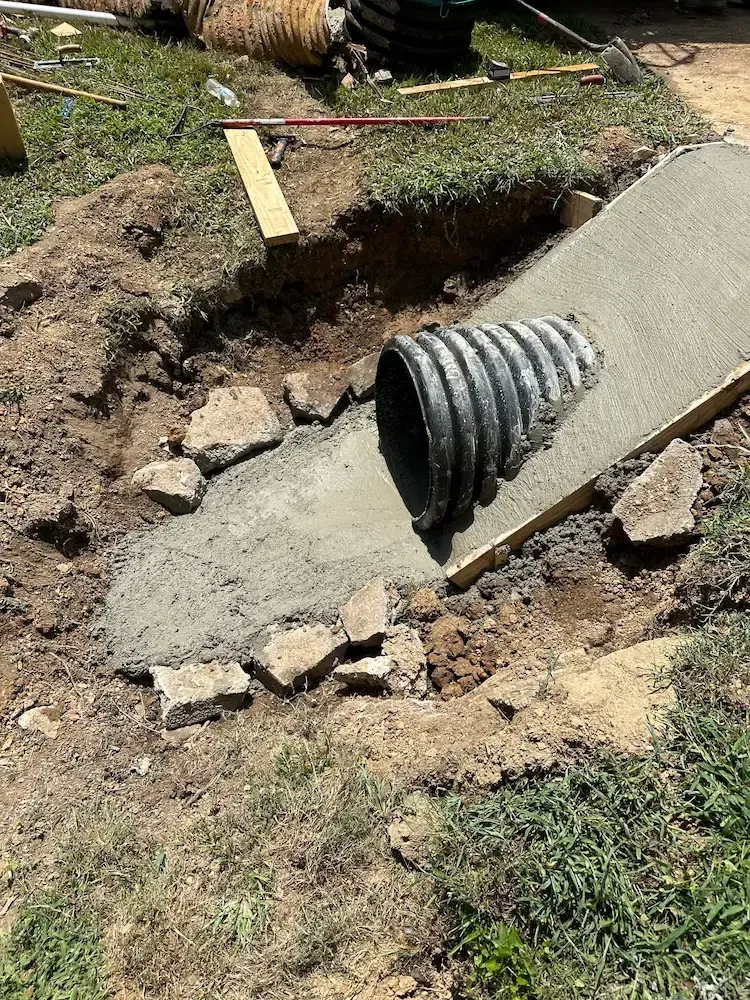
Signs Your Driveway Culvert Needs Repair or Replacement
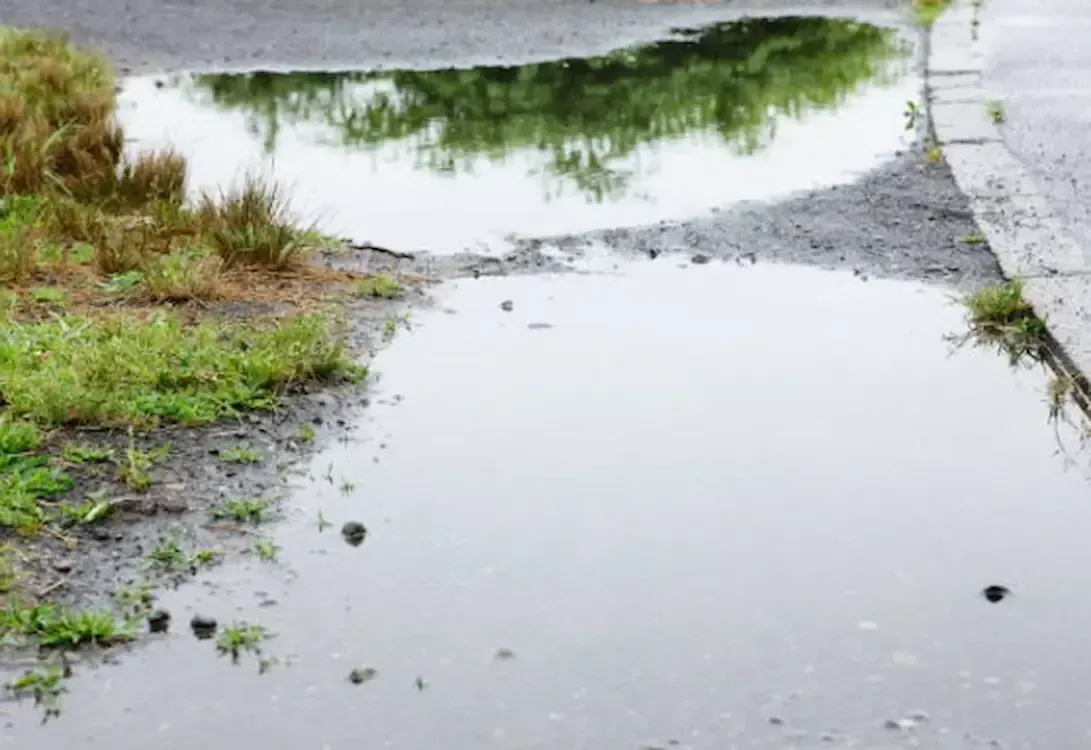
Over time, culverts can clog, collapse, or deteriorate. If you notice any of the following, it may be time for service:
- Water pooling at the ends of the driveway
- Driveway erosion or sinkholes
- Rusted, cracked, or broken culvert pipe
- Debris blocking water flow
- Frequent flooding after rain
Ignoring these signs can lead to driveway collapse and costly repairs.
Driveway Culvert Installation in Birmingham and Surrounding Areas
Installing a culvert is not a DIY job for most homeowners—it requires grading, excavation, and precise installation to ensure proper drainage.
Professionals follow these steps:
- Site Assessment – Checking the slope, water flow, and soil conditions
- Permitting – Many Alabama counties require permits before culvert installation
- Excavation – Digging the trench and preparing the site
- Pipe Placement – Installing the culvert at the proper grade
- Backfilling & Compacting – Covering the culvert with gravel or soil for stability
- Driveway Restoration – Adding asphalt, concrete, or gravel over the culvert
If you live in Birmingham, Hoover, or Alabaster, working with a local professional like Alabama Pumper ensures the culvert meets county and city drainage codes.
Driveway Culvert Maintenance Tips
To extend the life of your culvert:
- Inspect regularly – Especially after storms
- Clear debris – Remove leaves, sticks, and dirt blocking the pipe
- Check for erosion – Repair washouts before they worsen
- Flush with water – Occasionally run water through the culvert to ensure proper flow
Homeowners in
Pell City,
Odenville, and
Leeds often deal with culverts clogged by red clay soil, so keeping them clear is especially important in these areas.
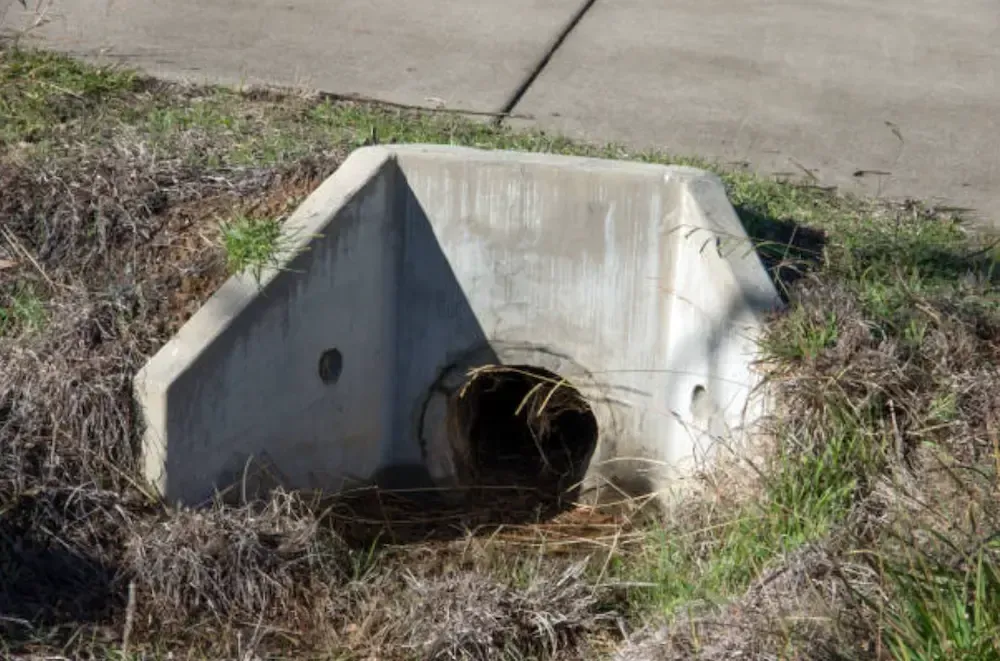
FAQs About Driveway Culverts
How long do driveway culverts last?
Concrete culverts can last 50+ years, while steel may last 20–30 years and plastic 15–25 years depending on conditions.
Do I need a permit to install a driveway culvert in Alabama?
Yes, most counties (including Jefferson, Shelby, and St. Clair) require permits to ensure proper drainage.
Can a clogged culvert damage my septic system?
Yes, poor drainage around your driveway can lead to flooding that affects nearby septic systems and leach fields.
How do I know what size culvert I need?
It depends on your property’s water flow and local code requirements. A professional installer will size it correctly.
Driveway Culvert Services in Birmingham Metro
At Alabama Pumper, we specialize in culvert installation, repair, and maintenance for homeowners and businesses across the Birmingham Metro area. Our team ensures your drainage system works properly so your driveway stays safe and stable year-round.
If you need
driveway culvert installation, repair, or replacement in Birmingham, Hoover, Gardendale, Leeds, Pell City, Odenville, or surrounding areas, call
Alabama Pumper today. We’ll make sure your drainage system works right the first time.
Ready to Learn More?
Stay tuned for more Septic Related Info & Tips!

